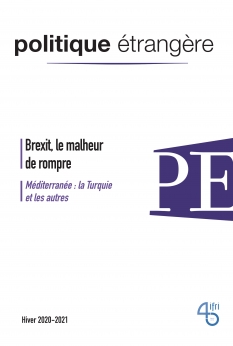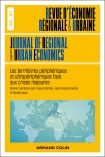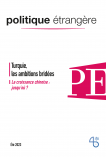
POLITIQUE ÉTRANGÈRE N° 4/2020
Pour acheter ce numéro, contactez-nous
Recevez les numéros de l'année en cours et accédez à l'intégralité des articles en ligne.
Le résultat du référendum de 2016 ne traduisait pas un populisme, ou un exotisme culturel, spécifiquement anglais. L’opinion britannique était alors en phase avec les opinions européennes critiques vis-à-vis de l’Union euro- péenne. La non-appartenance à la zone euro promettait une séparation sans trop graves effets. Séparation qu’annonçaient un fort attachement à la déci- sion nationale et un détachement persistant vis-à-vis du projet européen, vu comme un simple lien économique.
The 2016 referendum results did not reflect a specifically English populism or cultural exoticism. At the time, British opinion was in tune with European views critical of the European Union. Non-membership of the Euro zone guaranteed separation without too severe an effect. This separation was accompanied by a strong attachment to national decision-making and ongoing detachment from the European project, which was seen simply as an economic relationship.

